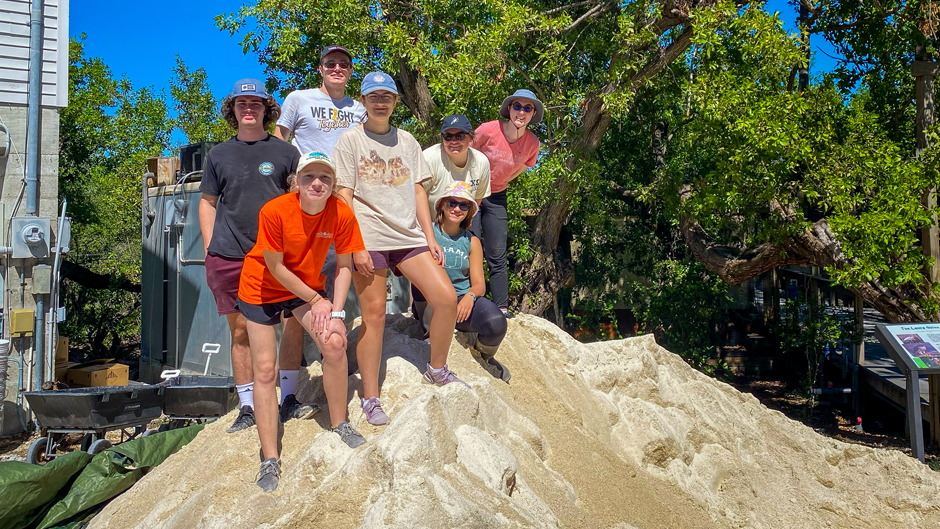For the recent fall recess, some University of Miami students spent the long weekend combating food insecurity, addressing child critical illnesses, and helping to conserve wildlife throughout the state of Florida.
Sponsored by the William R. Butler Center for Volunteer Service and Leadership Development, nearly 30 students completed service projects for communities across the state through the student-led organization Alternative Breaks, an immersive service experience designed to engage participants in their local, national, and global communities.
During fall and spring breaks, students pinpoint social justice issues impacting communities in their region—such as poverty, the stigmatization of mental illness, neighborhood revitalization, and other related causes—and independently travel to these locations.
This year, trip organizers selected the Florida Keys Wild Bird Rehabilitation Center, Cultivate Abundance, and Give Kids the World Village as nonprofit organizations that address wildlife conservation and rescue; food insecurity; and child critical illness, respectively. On Saturday, Oct. 14, students met on the Coral Gables Campus and traveled north, south, and west to Tavernier, Immokalee, and Kissimmee, Florida to volunteer through Tuesday, Oct. 17.
Alternative Breaks co-presidents Nicole Yakovlev and Maria Mejia-Botero both believe that embarking on this adventure with their classmates is a transformational experience.
“Through these trips, you get a lot a lot of learning experiences that you just wouldn’t in a typical classroom,” said Yakovlev, a junior studying ecosystem science and policy and public administration. “We’re also learning a lot of soft skills, like how to communicate within a group.”
Yakovlev's visit to the bird rehab center in the northern Florida Keys gave her a glimpse of the potential that lies ahead.
“It expands my idea of what the future holds,” said Yakovlev. “I think it's really cool to see these people that are so passionate working for a nonprofit or governmental agency—I can definitely see myself in a role like this.”
Mejia-Botero, a senior in the Plus One Scholarship program, visited Cultivate Abundance in Immokalee, an agricultural town about two hours northwest of Miami. Cultivate Abundance is focused on addressing food insecurity and other livelihood challenges in low income, immigrant farmworker communities. Mejia-Botero first visited Immokalee in 2019 and said this year’s trip was a full circle moment.
“It was really great to see how much the community garden had grown,” said Mejia-Botero, who studies public health and microbiology and immunology. “I really like that they cultivate food like sweet potatoes, okra, and green beans—all of which have cultural relevance and significance to the people they are serving.”
Vice president Zoe Bassett, a senior studying neuroscience, also visited Cultivate Abundance and left the trip inspired to continue serving others.
On their first afternoon, Bassett explained how the nine students on location were briefed on the town's history and the scope of their work. They then wandered around the area to gain a deeper understanding of their surroundings and had a chance to interact with the locals. The following day, they rolled up their sleeves and planted cacti, harvested sweet potatoes and Egyptian long beans, and assisted in organizing garden beds for future planting.
“It was really helpful for the community,” said Bassett. “They were telling us that to have nine students—that’s 18 extra hands—it expedited the work that would usually take them two to three weeks to just one morning.”
At Give Kids the World Village, students visited the 89-acre, nonprofit resort that treats children with critical illnesses and their families to a free vacation. Student volunteers spent their time and talent helping to create unforgettable memories.
“The impact that we made will continue to make a difference in these spaces,” said Bassett. “That was amazing to all of us, and we will always remember the connections we made.”

